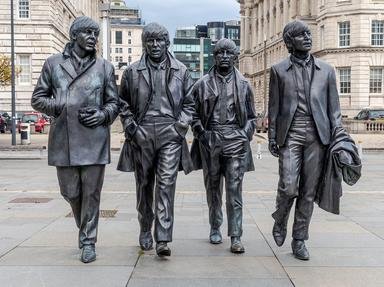Quiz Answer Key and Fun Facts
1. How many of the Beatles performed on "Tomorrow Never Knows"?
2. Although "Tomorrow Never Knows" is the last track on "Revolver", it was actually the first recorded.
3. What dates were utilized for the recording of the song?
4. According to John, what does he advise we do?
5. Of the following, what is one notable part of "Tomorrow Never Knows"?
6. John decided to reverse parts of the song after he accidentally put the demo tape into a tape deck backwards.
7. On the 2006 soundtrack "LOVE", with what psychedelic song was "Tomorrow Never Knows" paired?
8. What was John's primary inspiration for the writing and recording of the song?
9. Who inspired the title for the song?
10. Musically, what is most interesting about the song?
Source: Author
MastahCheef117
This quiz was reviewed by FunTrivia editor
ralzzz before going online.
Any errors found in FunTrivia content are routinely corrected through our feedback system.
